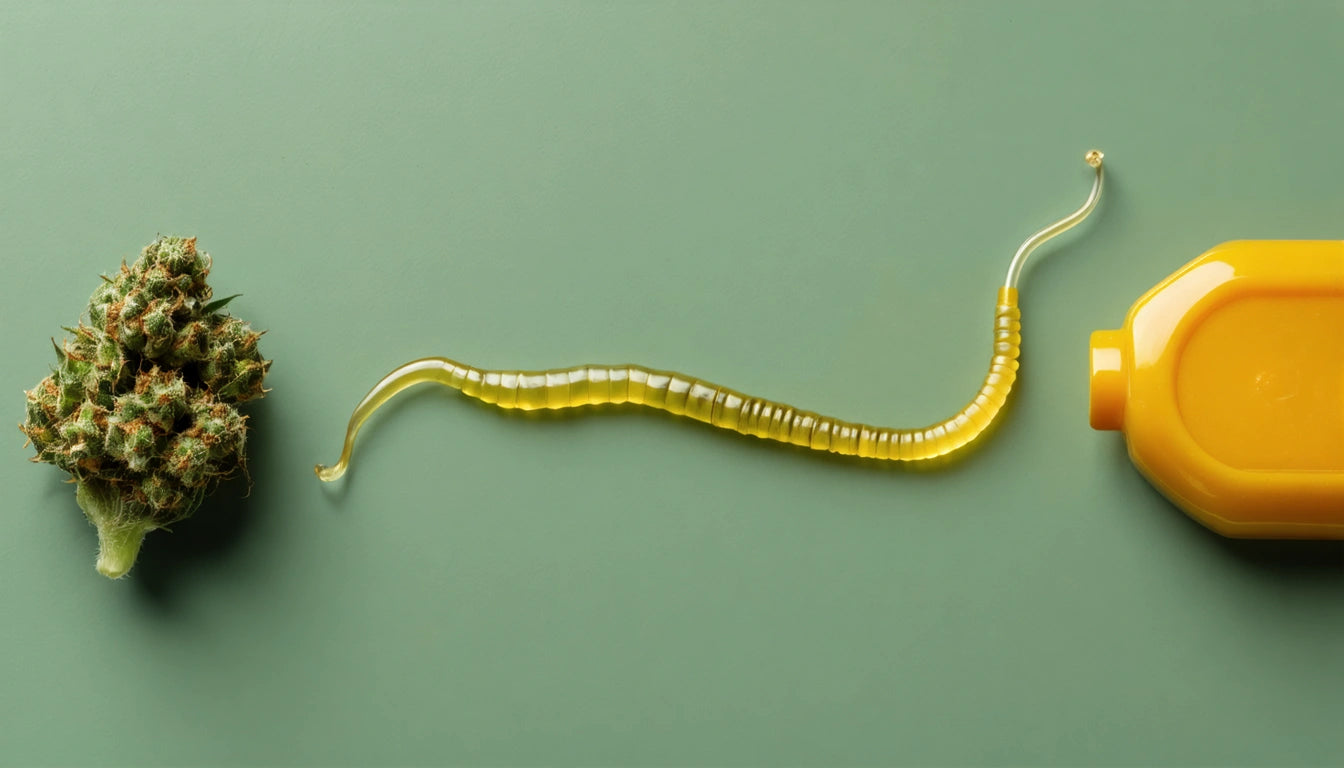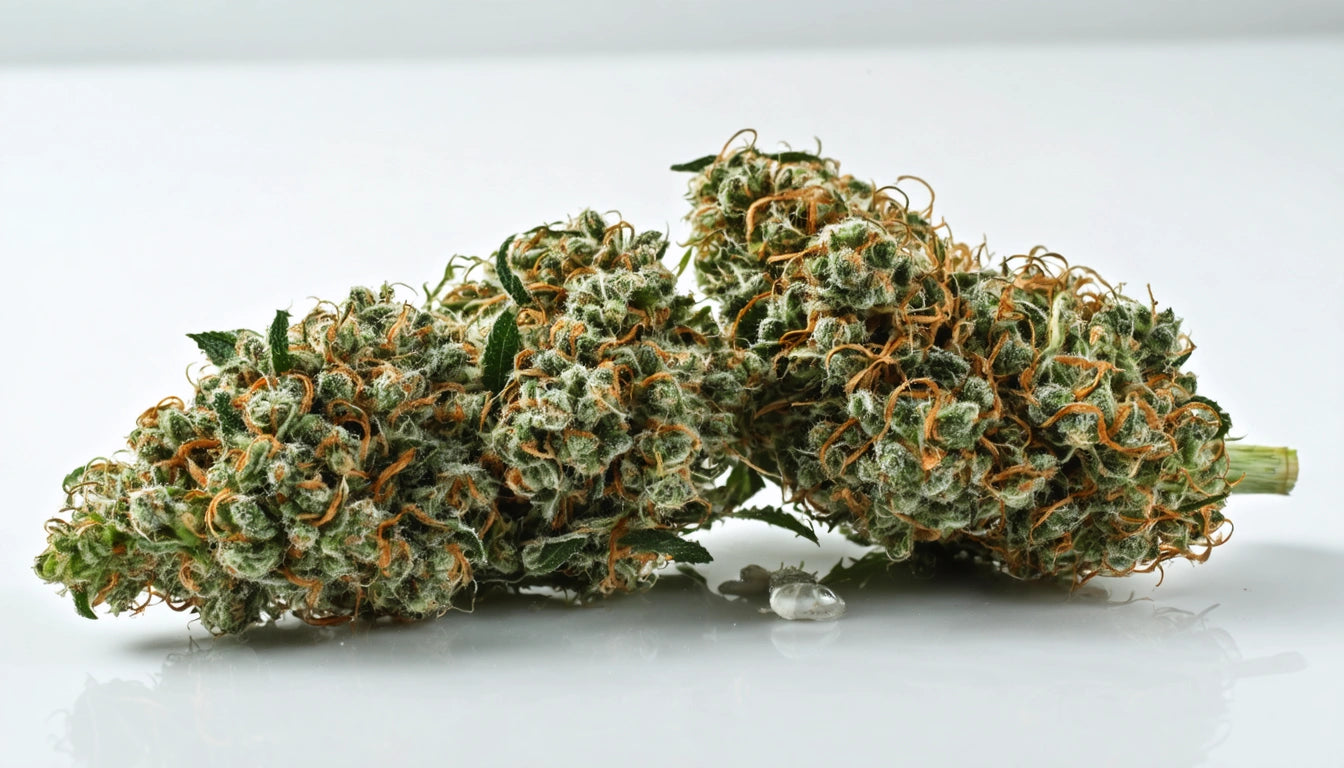Table of Contents
How Does Smoking Weed Affect Sperm and Male Fertility?
Cannabis use continues to rise as legalization spreads across the United States and globally. With this increase, questions about how smoking weed affects sperm and male fertility have become increasingly common. For men concerned about their reproductive health, understanding the relationship between cannabis consumption and sperm function is essential.
Cannabis Effects on Sperm Quality and Count
Research indicates that regular cannabis use can impact several aspects of sperm health. Studies on cannabis and sperm health have found several concerning patterns:
- Decreased sperm count in regular users
- Altered sperm morphology (shape and structure)
- Reduced sperm motility (swimming ability)
- Changes to sperm DNA integrity
A 2019 study published in Human Reproduction found that men who reported smoking marijuana had significantly higher concentrations of serum testosterone but paradoxically lower sperm counts compared to men who never used cannabis.
How THC Impacts Sperm Function
THC (tetrahydrocannabinol), the primary psychoactive compound in cannabis, appears to be the main culprit behind these reproductive effects. THC impacts reproductive health through several mechanisms:
Endocannabinoid System Disruption
The human reproductive system contains cannabinoid receptors. When THC binds to these receptors, it can disrupt normal sperm development and function. These receptors play crucial roles in:
- Sperm production (spermatogenesis)
- Sperm maturation
- Capacitation (the process that allows sperm to fertilize an egg)
Hormonal Interference
Cannabis use may also impact testosterone and hormone levels, creating an imbalance that affects sperm production. While some studies show increased testosterone levels in cannabis users, this doesn't necessarily translate to improved fertility.
CBD vs. THC: Different Effects on Male Fertility
The question "can CBD affect sperm" is common among those using non-psychoactive cannabis products. Current research suggests CBD may have different effects than THC:
- CBD appears to have less direct impact on sperm parameters than THC
- Some preliminary studies suggest CBD might even have protective properties
- However, many CBD products contain trace amounts of THC
For those concerned about reproductive health while still enjoying cannabis products, options like premium pre-roll products with controlled cannabinoid content may offer better control over consumption and potency.
Recovery Timeline: How Long Weed Affects Sperm
A common concern is "how long does weed affect sperm" after cessation of use. The good news is that the effects of cannabis on sperm appear to be largely reversible:
- Sperm production cycle takes approximately 74 days
- Studies suggest significant improvements in sperm parameters after 3-6 months of abstinence
- Complete recovery may take longer for heavy, long-term users
Research on cannabis and fertility indicates that temporary abstinence from cannabis can reverse many of the negative effects on sperm health for most men.
Fertility Considerations for Cannabis Users
For couples trying to conceive, the question "will smoking weed affect fertility" deserves careful consideration. Evidence suggests several important points:
Frequency Matters
Occasional use appears to have less impact than regular, heavy consumption. Men who use cannabis multiple times per week show more significant changes in sperm parameters than occasional users.
Consumption Method Considerations
While most research focuses on smoking cannabis, different consumption methods may have varying impacts:
- Smoking exposes reproductive tissues to combustion byproducts
- Edibles eliminate smoke exposure but may deliver higher THC doses
- Vaporization reduces combustion toxins but still delivers THC
Cannabis effects on reproductive health likely vary based on both frequency and method of consumption.
Research-Based Recommendations for Cannabis Consumers
For men concerned about fertility who also use cannabis, several evidence-based recommendations emerge from the current research:
- Consider a 3-6 month break from cannabis when actively trying to conceive
- Reduce frequency of use if complete abstinence isn't desired
- Explore lower-THC products or balanced THC:CBD ratios
- Discuss cannabis use openly with fertility specialists
- Consider sperm testing to assess individual impacts
While more research is needed on exactly how cannabis affects male fertility, the current evidence suggests caution is warranted for men concerned about their reproductive health. The good news is that for most users, the effects appear temporary, and proper planning can help minimize potential impacts on fertility.
As cannabis research continues to evolve, our understanding of its effects on reproductive health will become clearer. For now, moderation and informed decision-making remain the best approach for cannabis users concerned about their fertility.











Leave a comment
All comments are moderated before being published.
This site is protected by hCaptcha and the hCaptcha Privacy Policy and Terms of Service apply.